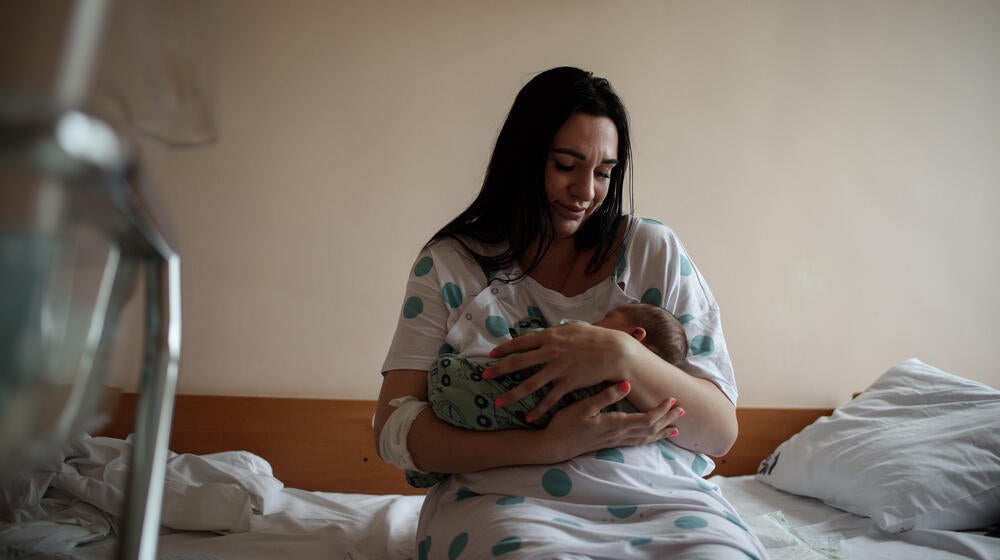More than 24,000 children are born in Moldova every year. About 18,000 of them are born in 12 perinatal centres, which the Ministry of Health recently modernized with the support of UNFPA. These maternity centres are now equipped with the most modern medical equipment, furniture, kits and consumables. Maternity and obstetric wards, neonatal and maternal intensive care units, women's post-operative recovery wards, and blood transfusion units have been fully upgraded in these centres.
The war in Ukraine has led to the biggest refugee crisis on the European continent in decades, and Moldova, as Ukraine's closest neighbour, has been at the epicentre of this crisis. The medical system has also taken on a large wave of refugees, and thanks to UNFPA's support for perinatal medicine, it has held up under the strain. Ukrainian newborns are among the 18,000 babies born in the renovated perinatal centres.
Yulia and her family almost immediately fell under Russian occupation when their hometown of Kherson was invaded. The ordeal became even more difficult when they learned that Yulia required a complex operation, which was very dangerous to perform in war conditions. After successfully recovering from the surgery, Yulia and her family fled Ukraine and eventually came to Moldova and now live in the capital Chisinau.
After half a year in Moldova, Yulia felt something unusual and went to the doctor. A detailed examination revealed that Yulia was expecting a child. She had been hoping for a pregnancy for a long time and was thrilled by this news.
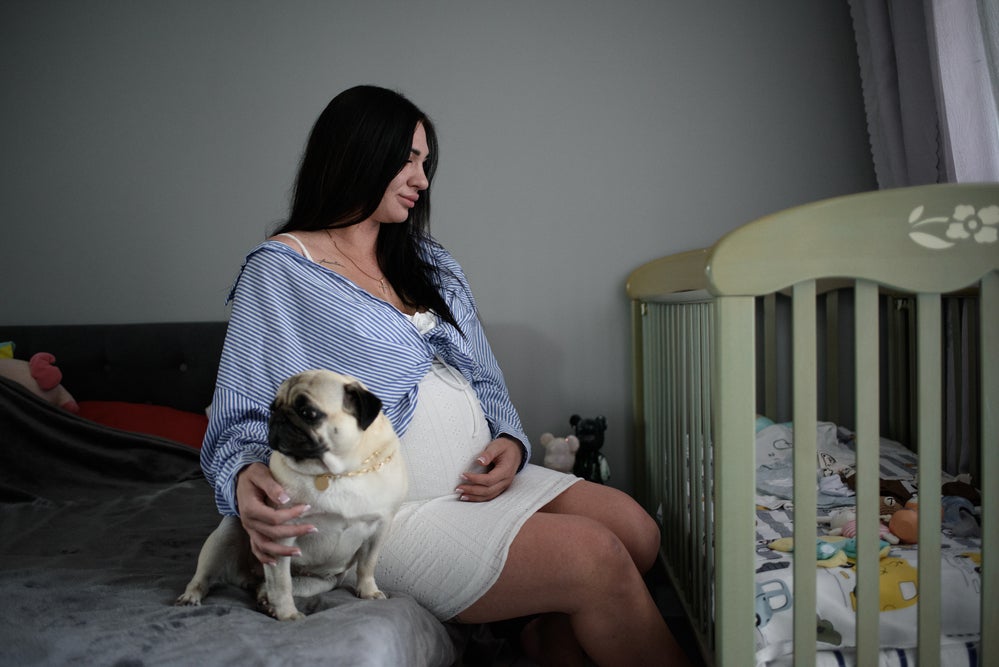
Yulia was expected to give birth in early June and planned to have a natural birth. When her contractions started, an ambulance took Yulia and her mother to the Gheorghe Paladi Municipal Clinical Hospital No. 1 in Chisinau – a clean, spacious and air-conditioned ward where she was under the care of doctors 24/7.
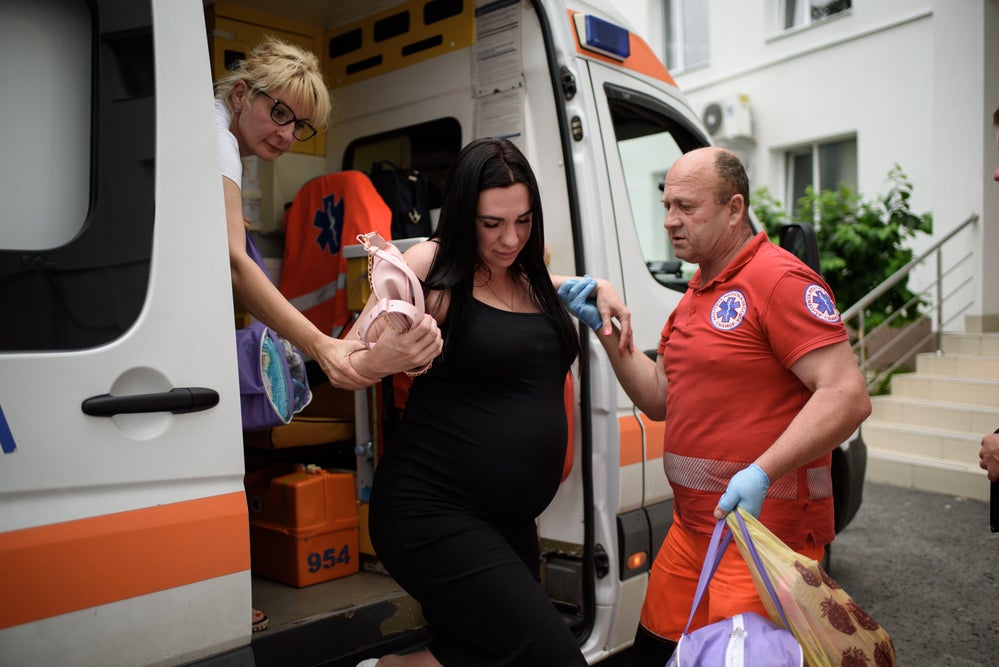
However, after her labour stalled, her doctor decided on a Caesarean section. The operation was supervised by Oleg Potachevsky, Yulia's doctor and head of the maternity department of Hospital No. 1.
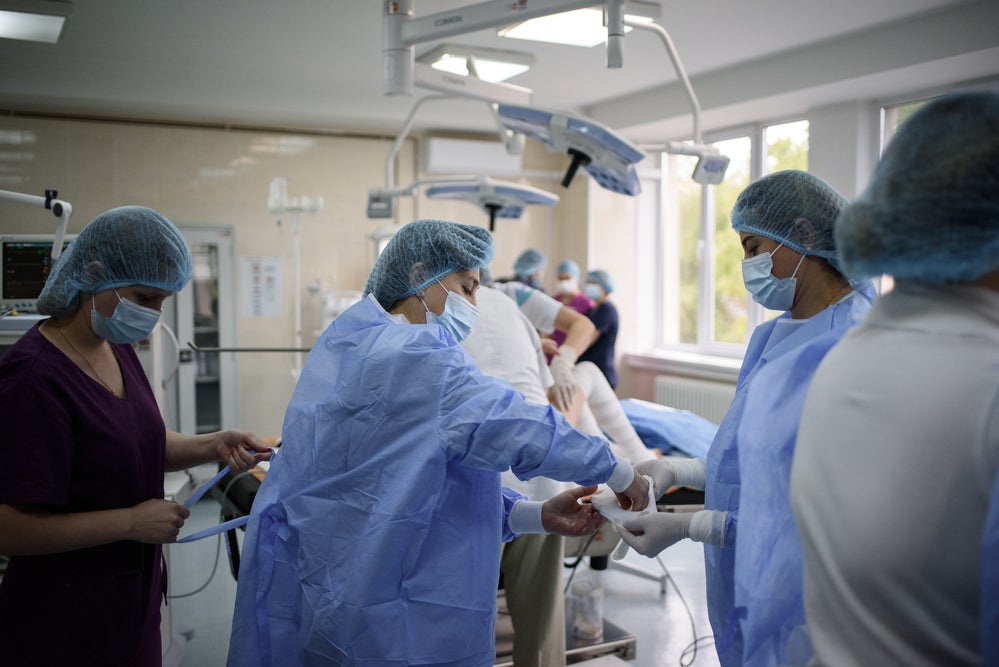
While the staff was preparing for the operation, Yulia was sitting on the operating table. Holding her hand was Ala Kalancha, the head midwife at the hospital with over 30 years of experience. Ms. Kalancha had been guiding Yulia through the prenatal period, and in this anxious moment, she was there to calm Yulia down.
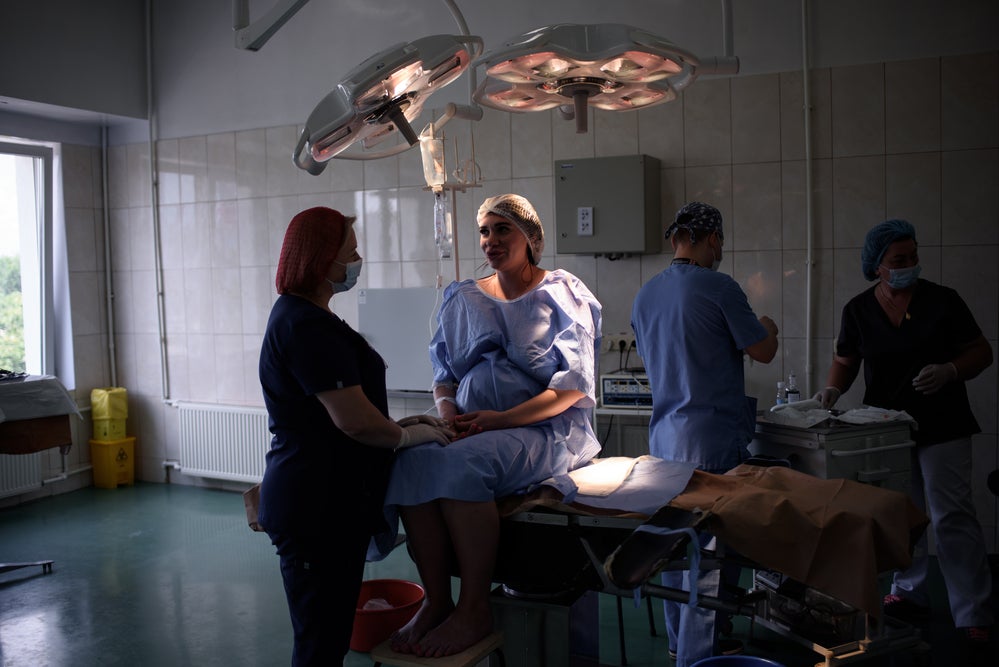
As they prepared for the C-section, there was silence in the operating room, with only quiet commands exchanged between doctors. Then, less than an hour after the surgery began, a small, wrinkly face with closed eyes appeared under the light of the operating theatre. As the newborn boy cried out for the first time, he was quickly picked up by nurses, taken to another room and wiped clean.
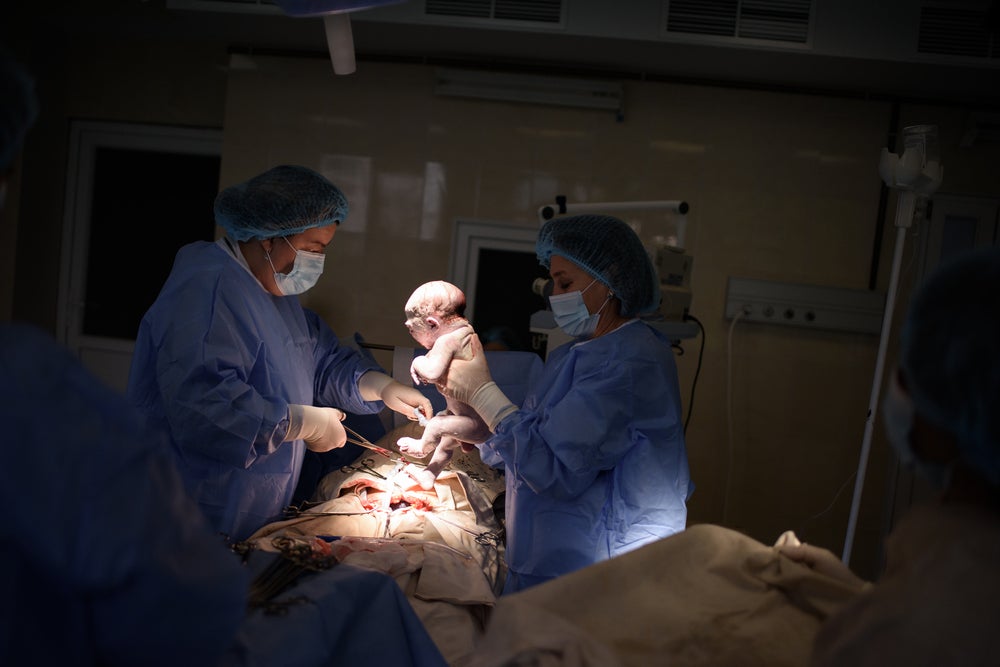
Finally, the baby was brought to his mother. This was the most important moment in Yulia’s life as she saw her child for the first time. She named her son Misha.
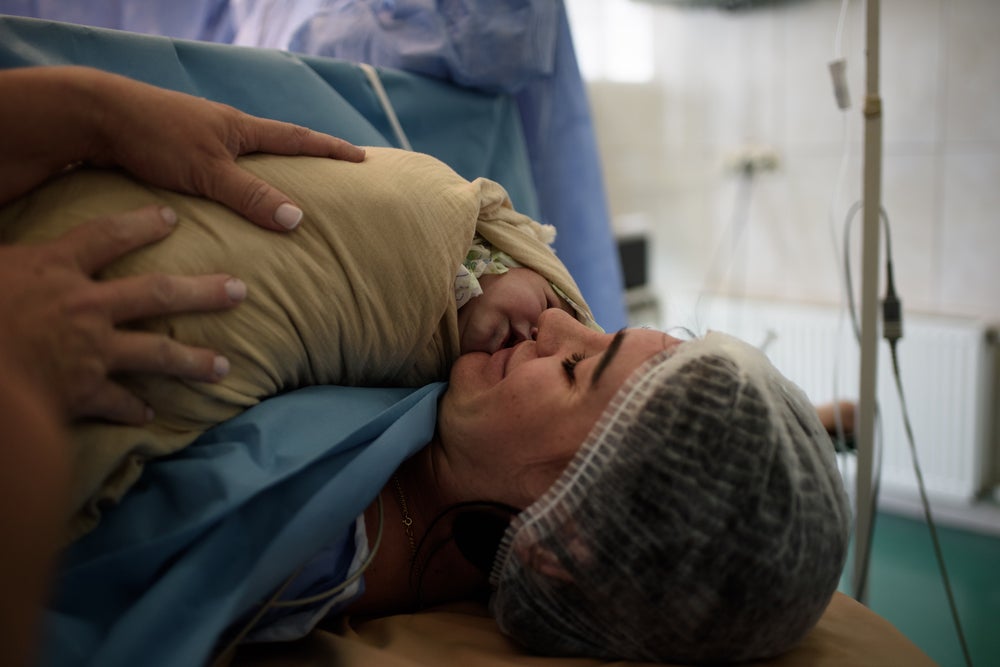
After the operation, the baby was taken to the room where his grandmother was waiting for him. There, he was weighed and measured, while Yulia was stitched up and then transferred to the intensive care unit.
—
Surgery is a complex process, so it is very important that the people who directly perform the operations feel comfortable. Therefore, the new equipment funded by UNFPA is functional and comfortable, which can have a direct impact on the health of pregnant mothers and children.
For example, previous operating lamps were old, causing the light to be scattered and not directed to the right area. Now, a precise light source is used. The operating tables are also adjustable to any position and are battery-operated. On the neonatal tables, where babies are placed immediately after birth, everything is connected – oxygen tubes and heating sources that used to be separate are now conveniently available on the same machine.
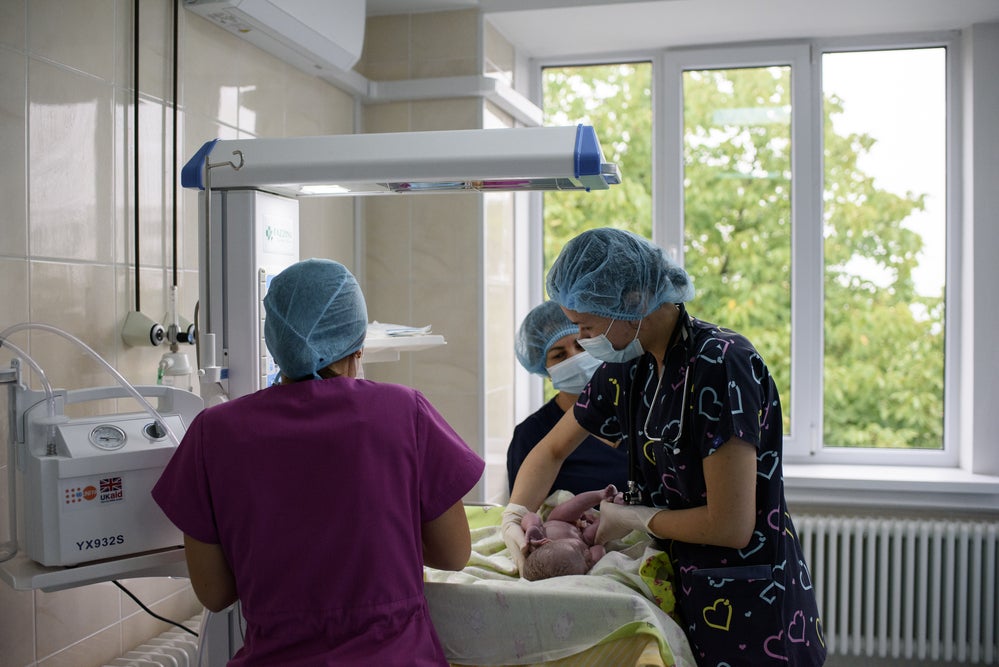
Ukrainian refugees not only give birth in Moldova, but also deliver babies as well. Natalia Meleca, a Ukrainian refugee from Mykolayiv, works in a hospital as an operating nurse and has found herself on the other side of the scalpel.
Natalia had worked as an operating room nurse for perinatal surgeries for 27 years in Ukraine. When the full-scale war began, she fled with her Moldovan husband to his small hometown of Orhei. They arrived in April 2022, and almost immediately, she got her same job at Orhei Hospital.
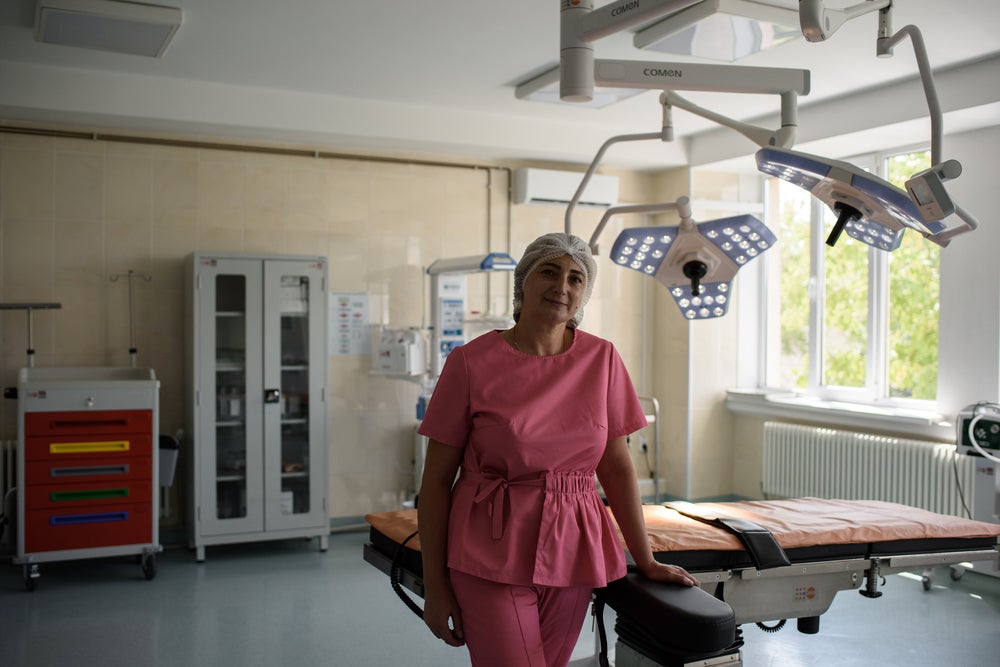
At the beginning, there were difficulties. Natalia did not speak Romanian, but the friendly staff understood the situation and helped as much as they could. They taught her terms in Romanian, sometimes communicating in sign language. Now, the situation has improved and Natalia can work seamlessly with the rest of the team.
Natalia's duties as an operating theatre nurse are wide-ranging. They include preparing the operating theatre for surgery; making sure that the participants in the surgery are all prepared; arranging the instruments, dressings and suture material; making sure that the patient arrives on time; handling the instruments during the surgery; keeping the operating room clean and sterile; and disposing all of the waste material at the end.
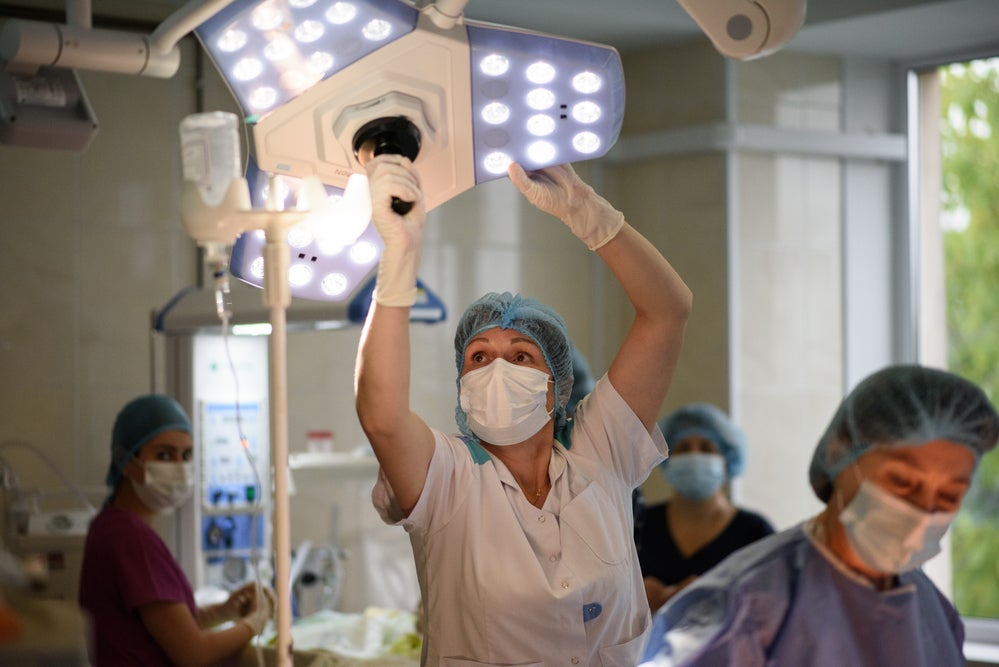
Natalia feels a special excitement when she is not the only Ukrainian in the operating theatre. This time, she is joined by Victoria, a young woman from Ukraine who is about to give birth to a baby boy. Between them, they exchange phrases in Ukrainian, and you can see how important it is for both of them to feel at home far away from home.
“When a child is born, it is a real happiness for me, especially when you hold them in your arms and they take you by the hand. I am happy for women. It is a great happiness to bring a child into the world.”
– Natalia Meleca.
UNFPA expresses its gratitude to all partners for their support: European Union, Sweden, Switzerland, United Kingdom, USA, Australia, Denmark, Iceland, Ireland, Netherlands, Norway, Japan, and South Korea.
Together, we save lives and help women give birth safely, even during times of crisis.
Safe births in modern conditions for every mother and newborn in Moldova

